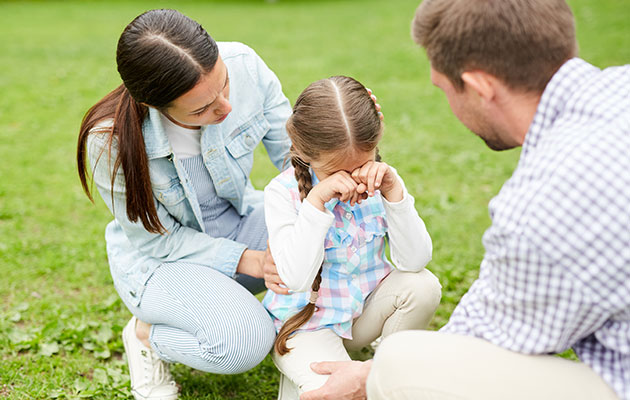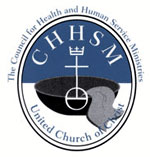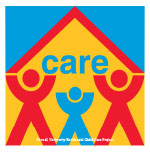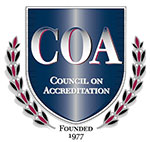PROGRAMS
GET INVOLVED
SUPPORT OUR MISSION

Protecting children from harm is often a shared goal among schools, communities, and entire nations; however, this isn’t always possible. Traumatic events vary, yet they all have the potential to deeply affect kids who have directly experienced them, or even witnessed them happening to others. Regardless of the specific situation, trauma can have a profound impact on a person’s mental, physical, emotional and behavioral health.
Though all foster youth don’t experience traumatic events, and frightening or dangerous events don’t always end up traumatizing them, being aware of both, the situations that cause trauma and the symptoms that suggest it, is a great start to effectively helping children cope.
Recognizing Symptoms of Trauma
Even after a traumatic experience passes, the trauma still lingers. Moreover, there may be resulting life changes that serve as constant reminders of that trauma, i.e. school transfers, court cases, or new living situations. Understanding the shift in circumstances that may remind youth of their trauma can help guardians know when to tune in and pay attention to trauma symptoms that may manifest as a result. Here are some common reactions, varying by age:
Preschool Children
Elementary School
Middle School & High School
If a child experiences any or most of these symptoms, it doesn’t necessarily indicate that they have been traumatized, but it may point to some sort of emotional upheaval they’re dealing with. For an official diagnosis, visit a psychiatrist, psychologist, mental health therapist, licensed clinical social worker, or licensed clinical professional counselor.
How to Help
The most effective ways to help a child through their trauma depends on their individual experience, however, there are some steps to take that can help reduce their trauma, in conjunction with the professional counsel of doctors, counselors and social workers.
Keep it consistent
Foster youth often experience a lot of disruption in their lives, due to frequent displacement in the system or as a result of their trauma. Though change is inevitable, this constant disruption can cause anxiety and trigger past trauma. One way foster families can ease some of this anxiety is through establishing patterns that provide a sense of security, like creating a daily schedule and follow it as closely as possible, explaining any changes of plans to kids in advance.
Look for Patterns
As part of their healing process, youth may develop particular coping habits to deal with their trauma or event reenact traumatic situations through school projects, playtime or other behaviors. Look for habits that have surfaced that may be connected to their trauma and take note of those behaviors, and when they tend to occur. Share this information with their counselor, social worker, physician or therapist.
Watch Your Response
Though there are common behavioral responses to trauma, there is no one ones size fits all way to respond. Some children may seek out attention and comfort through acting out or, conversely, through clinginess. The best thing for foster parents to do is to offer comfort, encouragement, and spend quality time with kids. They should remember to be patient as kids figure out how to cope, and provide them with professional resources to help them through that often lifelong process.
Foster families seeking support can call our Hoyleton Youth and Family Services’ Behavioral Health Department for more information (618) 688 – 4727.
Sources:
Parenting a Child Who Has Experienced Trauma : https://www.childwelfare.gov/pubPDFs/child-trauma.pdf
Trauma and Children: An Introduction for Foster Parents : https://fosteringperspectives.org/fp_v10n1/trauma.htm
Understanding Child Trauma : https://www.samhsa.gov/child-trauma/understanding-child-trauma


